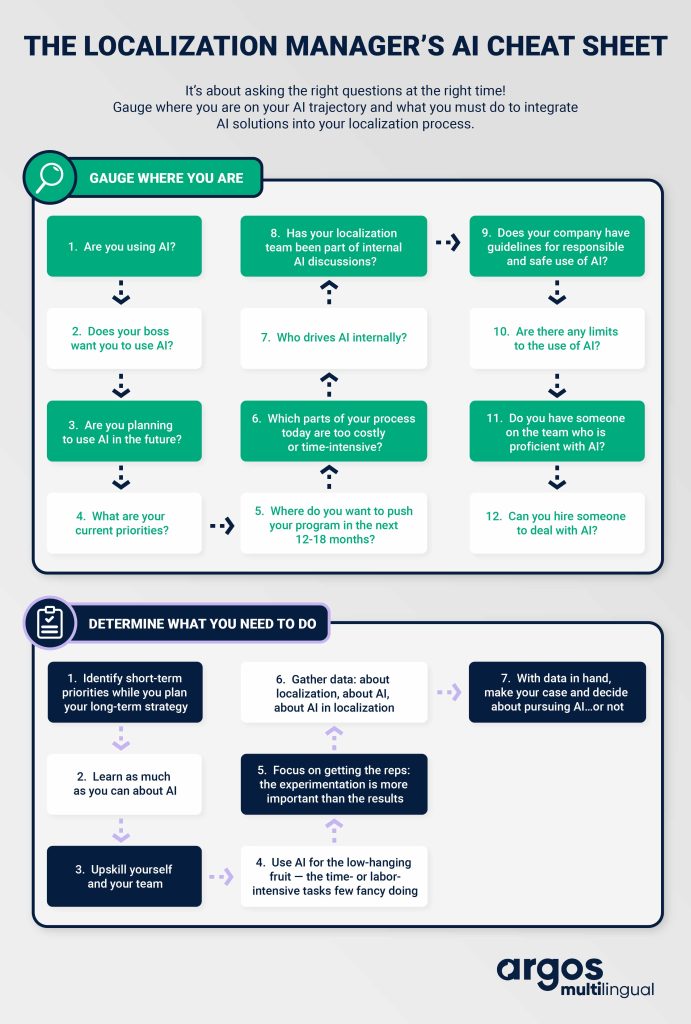You may be feeling the pressure from higher up to figure out how to make AI work in your localization program. Or you’ve decided that your team needs to be proactive about AI and get busy with hands-on experimentation. There are many reasons for wanting to learn about and start testing AI.
Regardless of how you got here, you need to do your due diligence about large language models (LLMs) and generative AI — if only to determine that they may not be a good fit for the current iteration of your localization setup, which may be one of the potential outcomes. But where do you start?
You will want to know where you are on your AI trajectory and what you need to do to reach a point where AI-powered solutions become an integral part of the process. You want to be prepared to ask the right questions.
We prepared a cheat sheet of crucial questions for you to answer to start being AI-active.

Talk to us
At Argos, we understand the complexity of integrating a new piece of transformative technology into the process — never mind something as transformative (and daunting) as AI. We’ve been researching and helping our clients navigate their transition into the AI-augmented future.
 Argos Multilingual
7 min. read
Argos Multilingual
7 min. read
The localization industry is undergoing a major transformation driven by rapid advancements in artificial intelligence (AI) and large language models (LLMs). These technologies are reshaping how language services are delivered, offering unprecedented opportunities for increased efficiency, scalability, and quality. Our recent report – Beyond the Hype: State of AI in Localization in 2024 – reveals […]

 Argos Multilingual
8 min. read
Argos Multilingual
8 min. read
In the life sciences sector, precision is paramount, making life sciences translation a critical component of quality assurance. Accurate translations ensure medical professionals can provide optimal care and patients can make well-informed decisions about their health. This emphasis on quality in life sciences translation directly impacts patient outcomes and healthcare efficacy.c In life sciences, where […]







